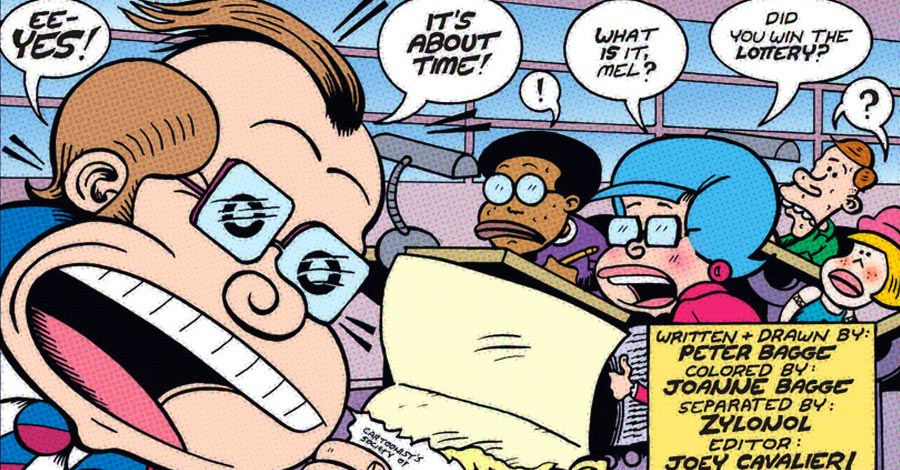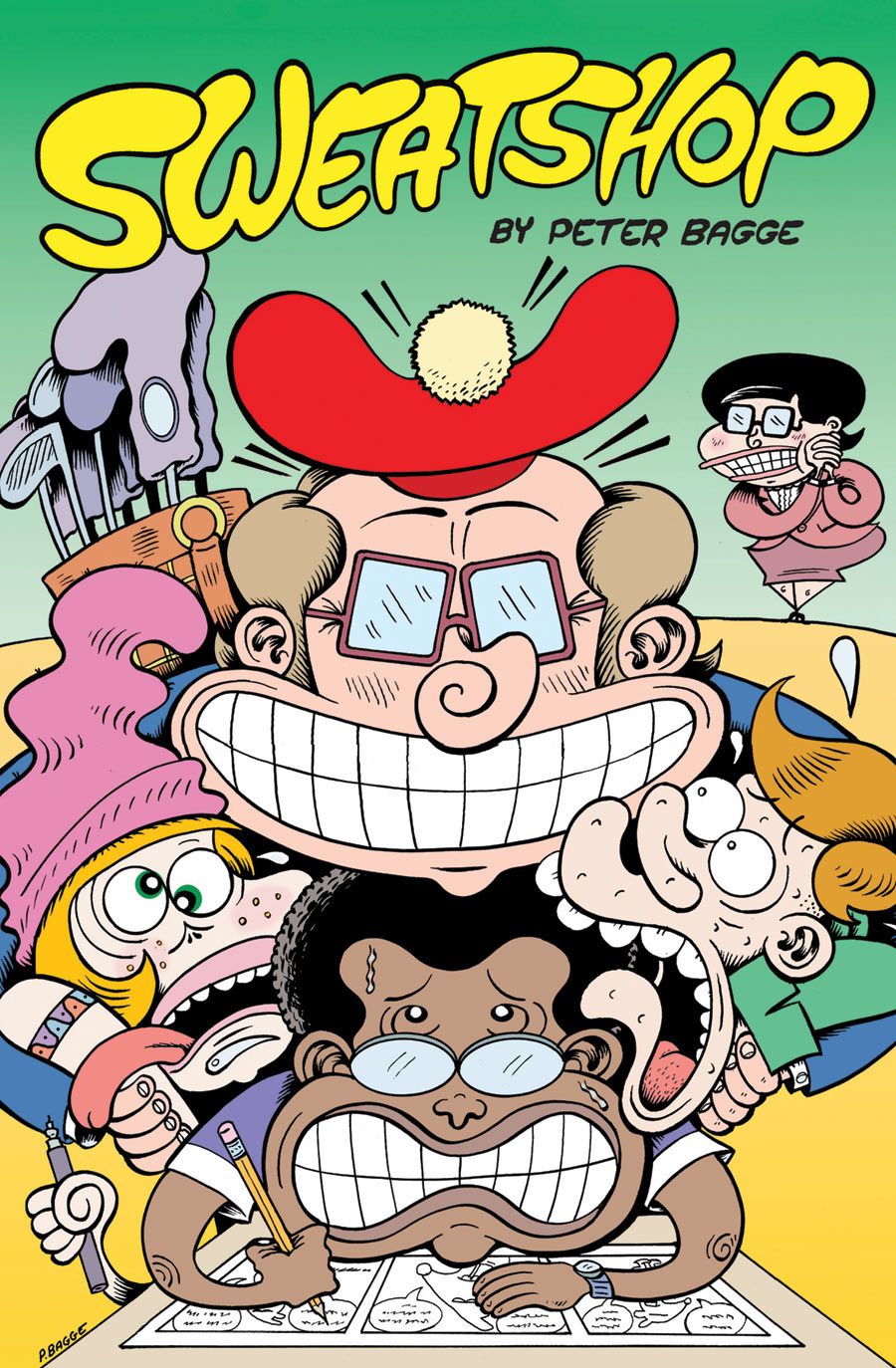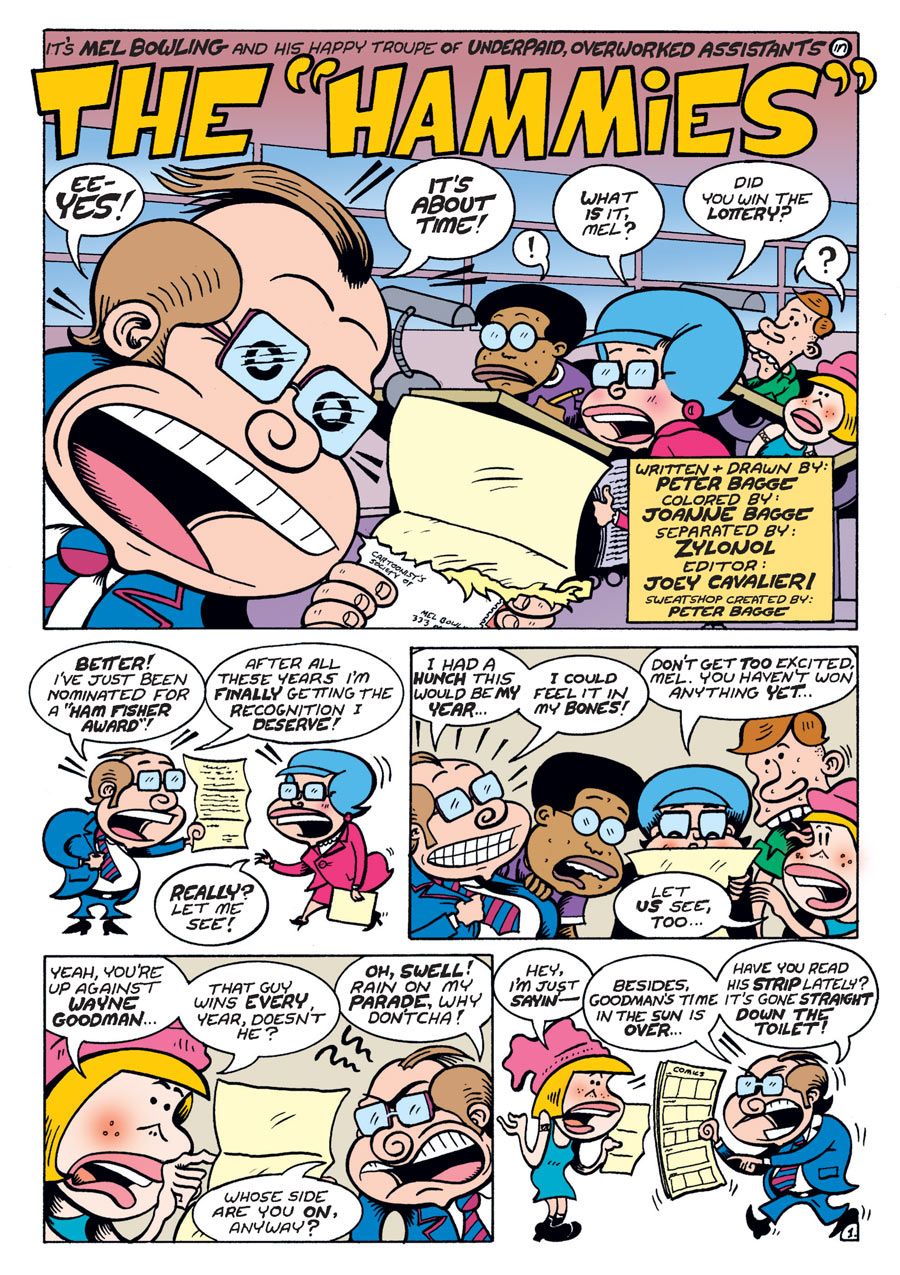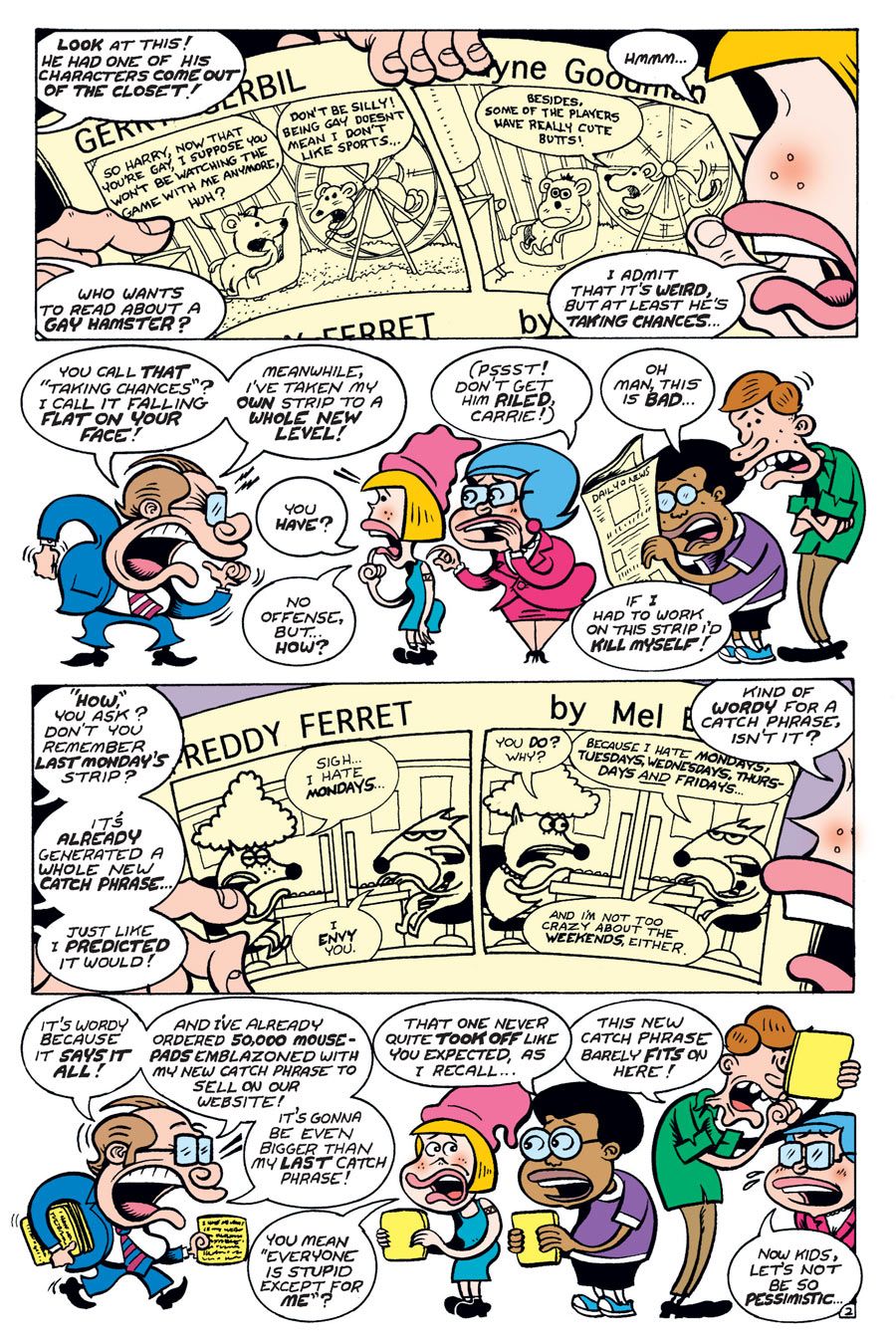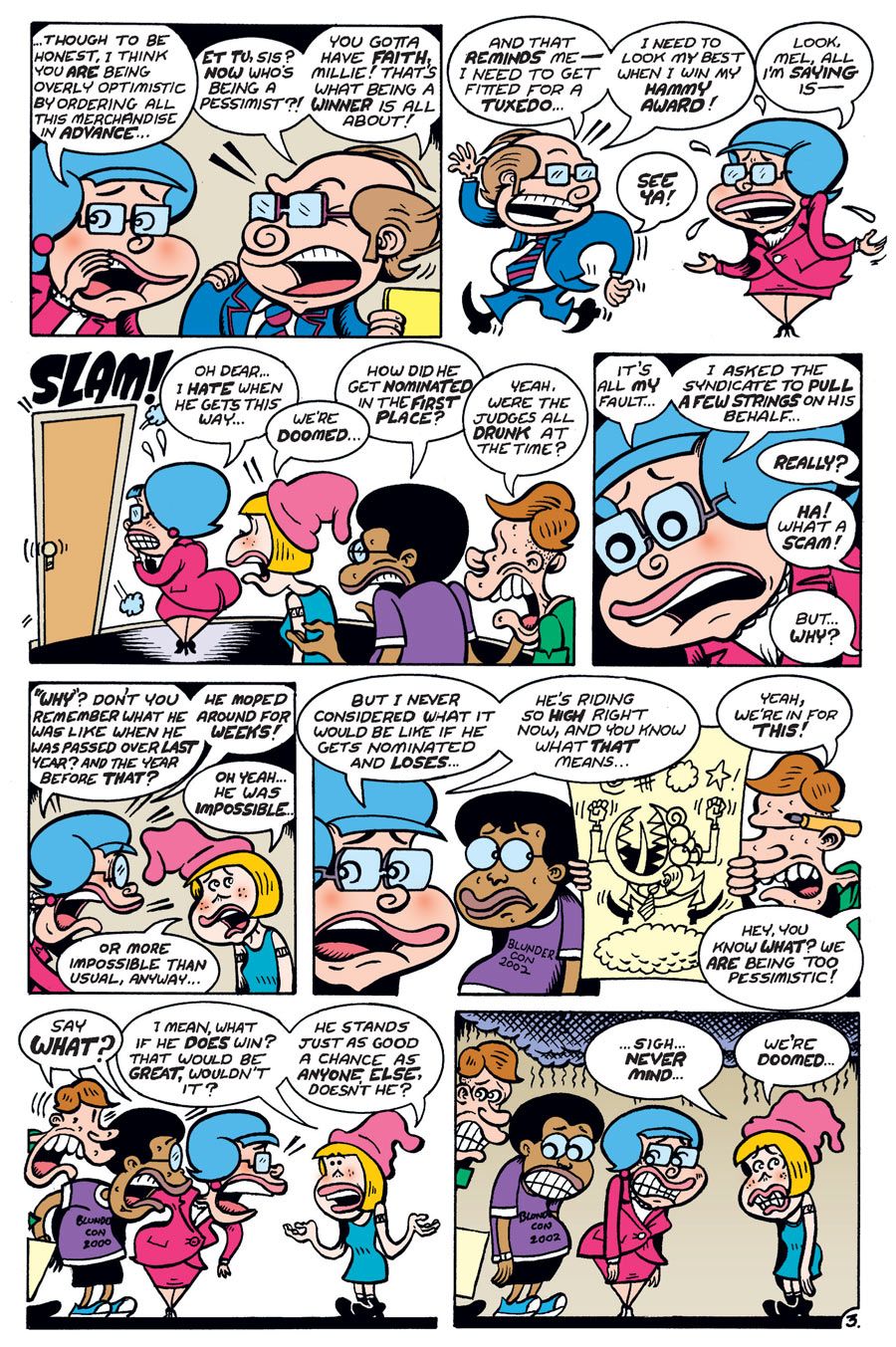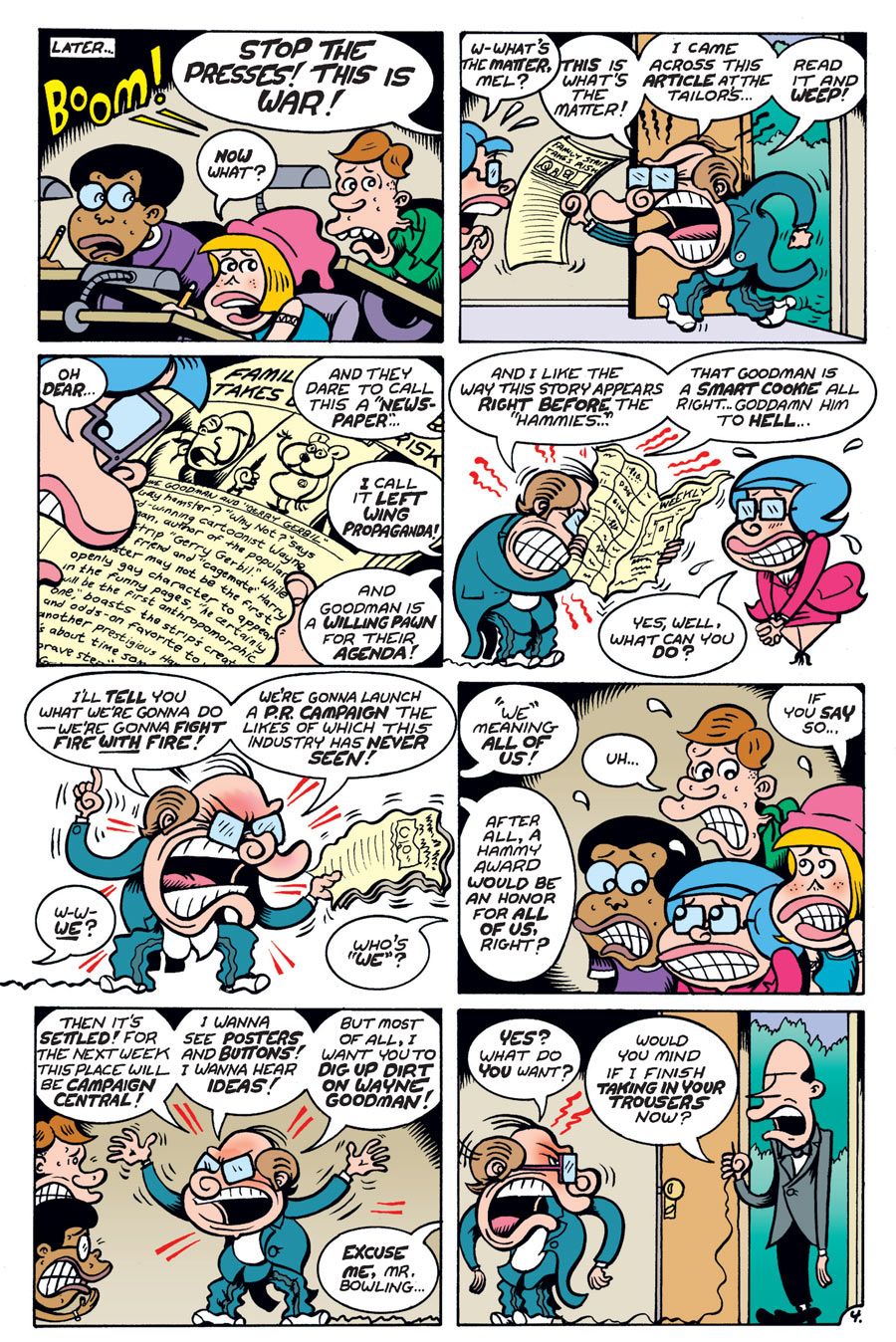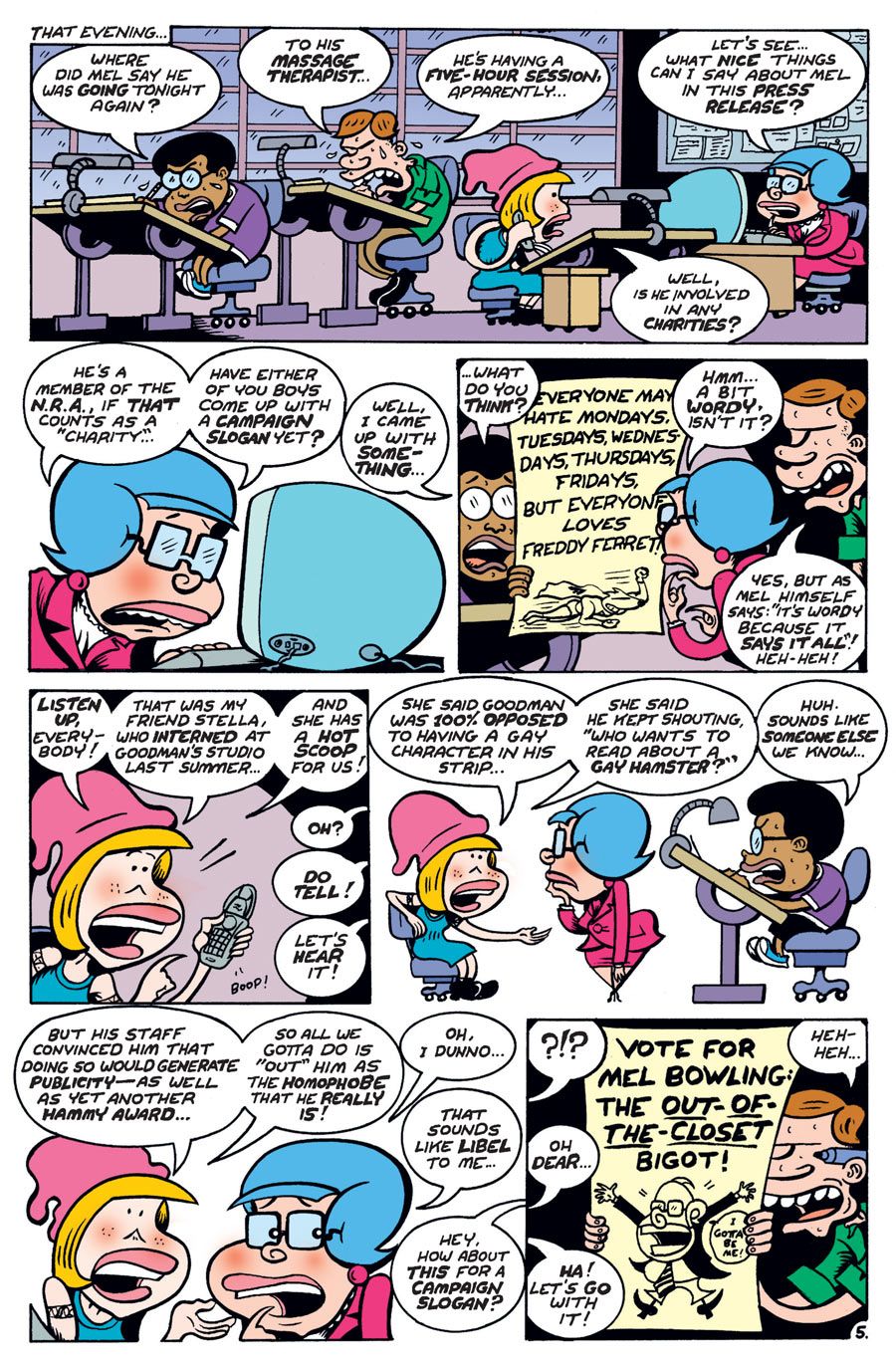As one of the most celebrated -- and funniest -- cartoonists of his generation, Peter Bagge needs little introduction at this stage of his career.
In the '80s, he established himself as a masterful humorist with "Neat Stuff" and his legendary series "Hate," and since then has continued to make some of the funniest comics around, ranging from his Spider-Man and Hulk stories for Marvel Comics to "Yeah!" and "Apocalypse Nerd." Of course, Bagge also has a more serious side, most recently receiving acclaim and notice for "Woman Rebel," a graphic novel biography of Margaret Sanger.
And then there's "Sweatshop." A six-issue series originally published by DC Comics, the book was unceremoniously cancelled by the publisher, as Bagge details in the book. Now available in a single collected edition from Fantagraphics, the series is a hilarious skewering of comics, detailing an elderly cartoonist, his mediocre comic strip, and his ambitious assistants who do all the work. Part of the first issue and the entire Comic Con issue -- featuring guest star Neil Gaiman -- were illustrated by Bagge, with Bob Fingerman, Stephen DeStefano and Bill Wray among the artists who drew the rest of the series.
CBR News spoke with Bagge about the new collection, and in addition to discussing its origins and how Gaiman helped him with the Comic Con issue's script, he revealed that he's recently been approached to resurrect the comic, which he says is "not a bad idea," though he's too busy to do so -- at the moment.
CBR News: While funny, "Sweatshop" also rings very true. Did you know cartoonists who did little to no work and handed it off to underpaid assistants, or people who worked for such cartoonists?
Peter Bagge: Certainly the latter, and from reading about such "working" relationships.And, of course, I've known people who claim more credit than they deserve. But I never knew a cartoonist personally who operated that way.I avoid such people!
You're not a monthly cartoonist, so I presume that there was a conversation about how the book would work, and finding people who had a similar-ish style to yours. Was it hard to find people willing and interested in doing the book?
Not too hard.In a nutshell, it was inspired by me and [editor] Joey Cavalieri sharing stories about cranky old cartoonists. Stephen DeStefano and Bill Wray were both recommended by Cavalieri, both of whom he worked with before.Both did fine work as well, though DeStefano walked away from the project, so we replaced him with people I knew and worked with.They all also did good work. I was very happy with the process and the results.
You really seemed to have fun with the Comic Con issue. Did Neil Gaiman or Ivan Brunetti complain about how they were depicted?
No, no one complained.And it was Gaiman who suggested that we changed the word "pants" to "trousers," since he's English!
You wrote and drew the Comic Con issue, but the rest you wrote for the other artsits. Do you wish that you could have drawn them all? Was the plan that you would draw stories occasionally?
I drew the first story in the first issue as well, but yes, I wish I could have drawn them all.It's a "control" thing, though again I have to stress that I liked everyone's contributions. Iked the variations other brought to the final product.
What other kind of fun did you have planned for the book before it was cancelled?
I had an outline for a story regarding the Comics Code Authority -- who turned out to be a chimp in a remote shack with a red magic marker -- and another about Carrie insisting Mel hire interns, so Mel puts her in charge of the hiring and she winds up firing them all.There were other germs of ideas that I can't recall off hand any more.
Now I really want you to make a story about the Comic Code Authority chimp.
Ha!Does the code still exist anymore? If not, it'd be a dated gag.But Bob Fingerman just asked me if I'd consider reviving "Sweatshop" for another publisher.Not a bad idea, though I'm pretty swamped at the moment.
Fantagraphics has published collections of both of your DC Comics books, "Yeah!" and "Sweatshop." Looking back on them, what do you think of the work now?
I was proud of both titles at the time, and remain so.While not surprised, I was disappointed when both titles were cancelled.
Since "Sweatshop," you've done less collaborative works. Is there any particular reason why?
I simply no longer feel the desire or need. I used to be insecure about attempting to draw some ideas of mine. I also liked to see how others would interpret my scripts -- just for the sake of variety, and to see if I could learn something from it.
Do you have any thought on why it's so hard for humor comics to actually find a home nowadays?
There's no longer a sharp dividing line between humorous and dramatic work, in all media.Lots of humor is injected into adventure titles now, so many fans will name one of them as their favorite "humor" title.As for pure humor -- especially satire -- animation seems to have become the home for that.
Given that superheroes seem to have taken over the world, does that increase or decrease the chances of seeing you make fun of them the way you did with Spider-Man and Hulk?
I never had a strong desire to satirize superheroes.The two you mentioned were the result of me being asked to do them. I had ideas for each that I thought would make for a good story.
What are you working on now?
I'm finishing up a collection of "Founding Fathers Funnies" strips for Dark Horse (due out in early '16), while working on another full length bio comics for Drawn & Quarterly -- this one on Zora Neale Hurston (due out in late '16).
I'm a big fan of Hurston's work. What inspired you to make a biography of her?
I'm also an admirer, and I share her political and philosophical views.But also because she had a wild, tumultuous life -- the type that makes for good comics!
Is the plan, or hope, to make more comic biographies in the future?
Yes, I'd love to do one on Rose Wilder Lane (daughter of Laura Ingalls Wilder).And my wife wants me to do one on Brian Wilson of the Beach Boys -- a great subject, but I'd hate to tackle it while he's still alive!
What for you is the relationship between your comic work like "Hate" or "Sweatshop" and work like "Woman Rebel?" Because I'm sure that a lot of people don't see a connection.
It's still all about telling stories -- stories that are largely dialogue-driven, and are built around people with strong personalities.

